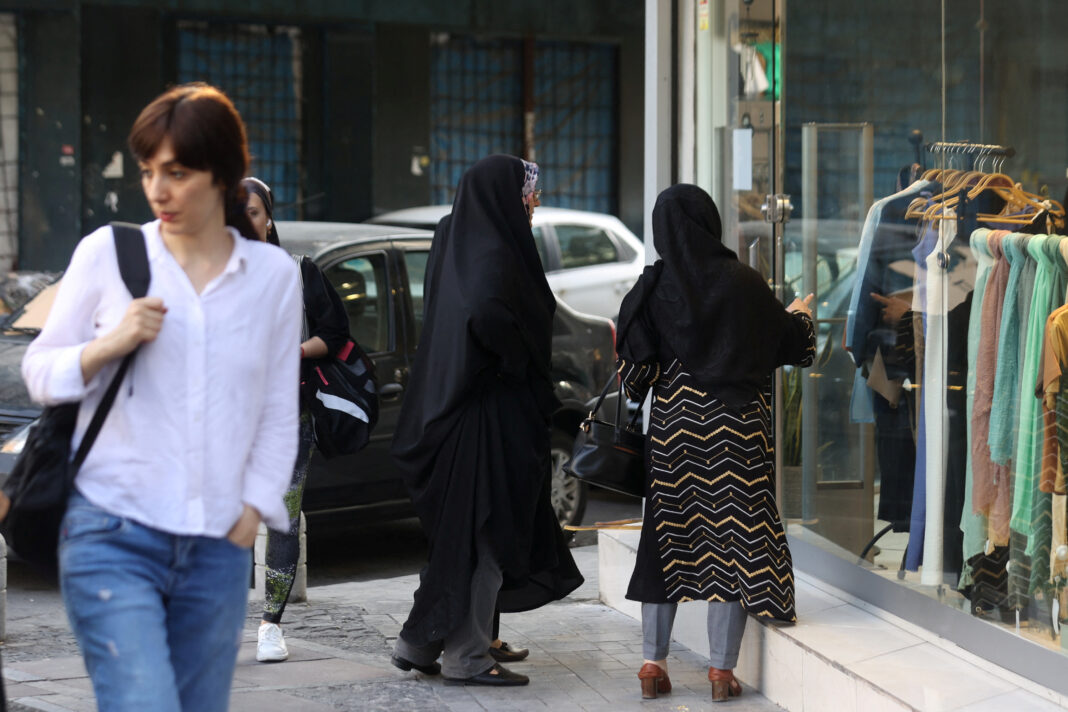The Iranian government has brought back the Morality Police trying to re-impose hijab to the women against their will. What can we expect from this decision? Following around 10 months of inactivity, the Morality Police has been brought back by the Iranian government. It will be in charge of ensuring that women dress in the “appropriate” manner and of punishing those who choose not to do so.
The consequences of this decision are still unknown but, what is clear is that recent protests have significantly changed and shaped the country and, the government will encounter difficulties in imposing its will.
What is the Morality Police?
The Morality Police, also known as Gasht-e- Ersh is a unit responsible for “upholding right and forbidding wrong.” Therefore, its main responsibility is that of making sure that the population acts in accordance with the agreed norms and of punishing those who do not abide by the state’s laws.
The definition of its role, however, is extremely vague and, this ambiguity has led many to consider them a means through which the state tries to ensure control on its population and limit its freedom.
The Morality Police is a relatively new unit, having acquired its independence only in the 1990s, following the Iran-Iraq war. It has then increased its power during Ahmadinejad’s rule in the mid-2000s, when it was given more freedom and power to act on the population.
Previous protests and the Morality Police’s response
The Morality Police became inactive following the intense protests that took place in the country in the year 2022, after the death of Mahsa Amini. She had been detained for not wearing her hijab correctly and sent to a detention center in order to be “reeducated” but lost her life while being there. The death of the 22 years-old girl led to the uprising of marked and violent protests against the government both within the country and on the international stage, to which both women and men took part.
The impact of the confrontations has been significant, with a total of 600 deaths and the imprisonment of 20.000 people in the country.
Given the difficulties encountered by the police in containing such widespread protests, patrols by the Morality Police had been significantly reduced, leading eventually to the extinction of violent confrontations between the public and the governmental forces.
Although protests had died down, however, more subtle forms of opposition continued to be performed by the population. For instance, many women refused to wear their hijabs in public despite it being a violation of the country’s laws.
The government’s decision to resume patrols: why and what does it entail?
The rulers of the state have chosen to bring back the Morality Police after 10 months of inactivity and to introduce even stricter rules in order to ensure that Iranian women continue to dress “appropriately”. The main reason behind this decision is the fact that the refusal of wearing the hijab and loose clothes is seen as a sign of Western decadence, which cannot be accepted by such a conservative rule as the one that is in place today in Iran.
The government has already started employing surveillance through cameras, in order to identify those who do not abide to the rule. As stated by the government, those who are found going against the government’s rules will be given a warning first and, if they choose to not follow the correct protocols, they will be brought to detention centers in order to be “re-educated”.
Controls on businesses will also become harsher. Cafes, restaurants and even shopping malls who will choose to serve women who are not dressed “appropriately” will be shut down.
What are the consequences?
By reintroducing the Morality Police, the Iranian government has chosen to underline its view on hijabs and its opposition against the acquisition of the Western modus operandi in the country.
The consequences of this decision are still unknown but, previous protests have shown that the population is strongly opposed to the conservative government and want reforms to take place in the country. Therefore, it can be concluded that the government will encounter numerous challenges in imposing its will as, many do not share its views and conservative character.
The consequences of this decision are still unknown but, what is clear is that recent protests have significantly changed and shaped the country and, the government will encounter difficulties in imposing its will.
The Morality Police, also known as Gasht-e- Ersh is a unit responsible for “upholding right and forbidding wrong.” Therefore, its main responsibility is that of making sure that the population acts in accordance with the agreed norms and of punishing those who do not abide by the state’s laws.




